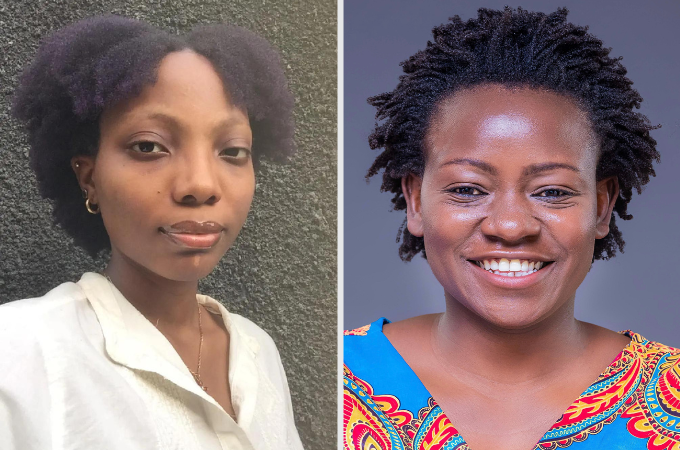
The Literary Laddership for Emerging African Authors has announced its 2023 fellows. They are Gabrielle Emem Harry from Calabar, Nigeria and Yanjanani L. Banda from Zomba, Malawi.
The Literary Laddership was founded by Nigerian writer Suyi Davies Okungbowa as a three-component writing fellowship to support, elevate and connect emerging fiction authors of African descent writing from Africa. This year, they received 55 applications from writers in Malawi, Ghana, Kenya, Zambia, Zimbabwe, Nigeria, South Africa, and Tanzania. Okungbowa remarked:
While we received many impressive, interesting and exciting submissions from clearly talented applicants, we could only award the fellowship to two candidates, and the two fellows selected above have demonstrated a penchant for high quality prose, unique storytelling approaches, a strong commitment to the writing practice and the promise of similarly impressive work in the future.
Starting in July, the two fellows will receive $500 for three months to buy time, space and resources to create new work or complete their existing one. They will have access to a private community of practice including authors sharing craft lessons, best practices, and insider publishing knowledge. Upon completion, fellows will be provided with guidance to navigate the publishing industry and submit and publish their work.
Read about the fellows below.
Gabrielle Emem Harry is a Nigerian speculative fiction writer. Her work has appeared or is forthcoming in Efiko, Omenana, Kenga and PRIDE: An Anthology of Diverse Speculative Fiction. The judges praised the elegance and brilliant simplicity of her writing:
The writing is deft – that there is little exhibitionism about this deftness is, I feel, a plus. There is a simplicity here that is not simplistic – there is elegance to this simplicity, one which intimates that the writer is a keen observer of things and events.
Although the narrative grapples with weighty subjects – belief, virtue, mortality, transgression, prejudice, the limits of humanity, etc. – it does so in a way that is humorously cheeky, and easy to understand; the writing is clear in its exploration of key ideas. I get the sense that this writer has sat with, and thought deeply about, these ideas (and their implications) for a while. (Perhaps this is why the narrator doesn’t always need too many words to achieve moments of extraordinary poignance.) This seems to me like a writer who can be relied on to take risks with subject matter.
Yanjanani L. Banda is a writer from Malawi. Her work has appeared in the Bristol Short Story Prize 15th Anthology, Quilled Ink Review, Brittle Paper, Afritondo Magazine, Kalahari Review, African Writer, and Spillwords. The judges like that she brings subtlety to the exploration of difficult and weighty issues:
This reads like writing from an assured hand. Here is a writer who can express themselves and their ideas clearly. The narrative is unhurried, but not in a way that suggests negligence or, even, say, a lack of knowledge of dictates like “start late and finish early.” If anything, the leisurely pace speaks to a kind of dignity and equilibrium – almost as if the writer knows that you know that they have adopted a more measured pace for a very good reason (which might take a while to discover but which you know you’ll stick around for).
Although one might argue that corruption has been written about countless times, the sample gives me grounds to hope that the narrative will offer newness and surprise. There’s a subtleness to the exploration of difficult conversations that appeals to me.
Congrats to the two 2023 fellows!









COMMENTS -
Reader Interactions